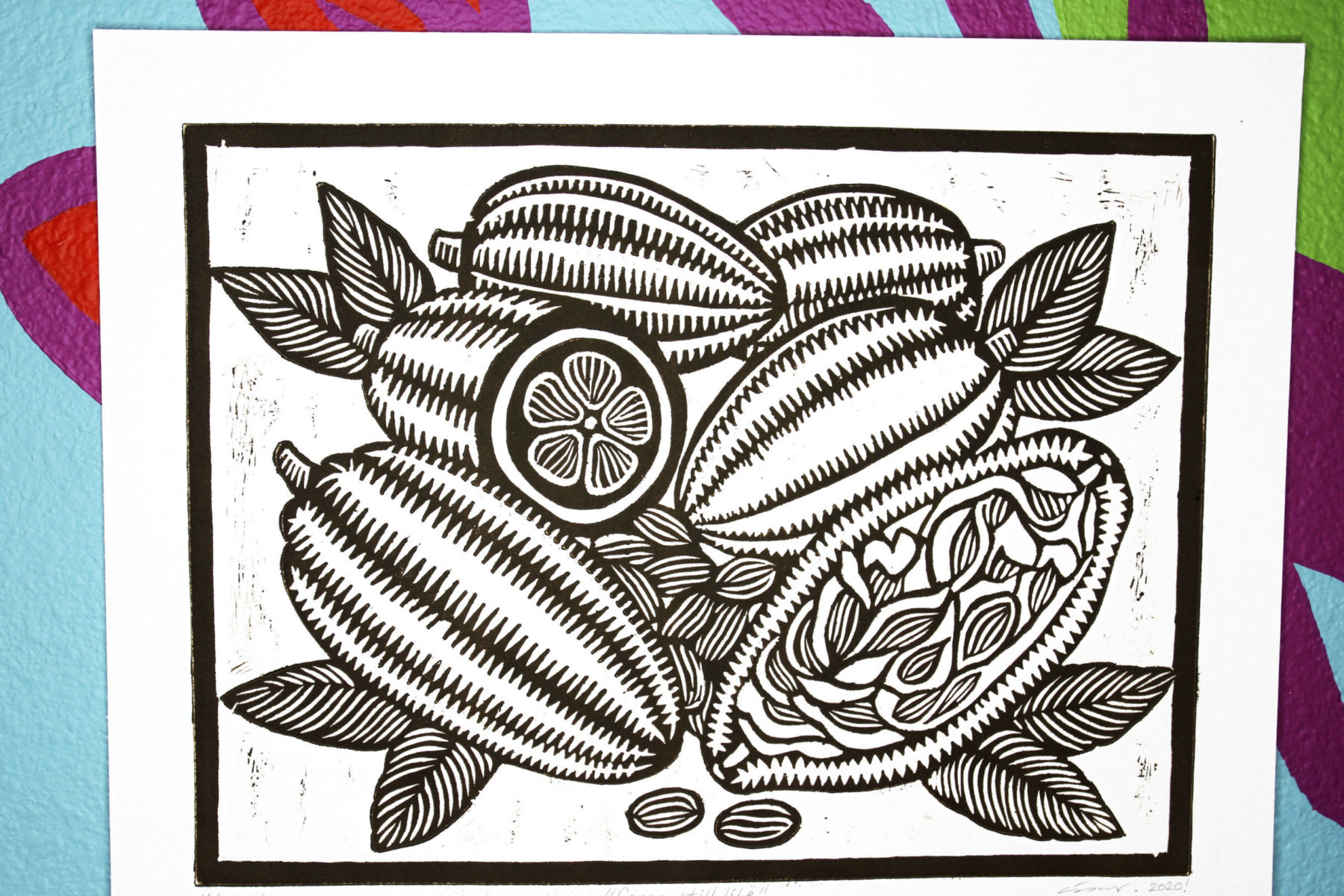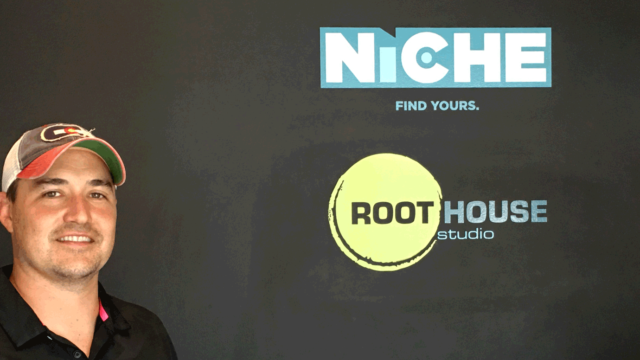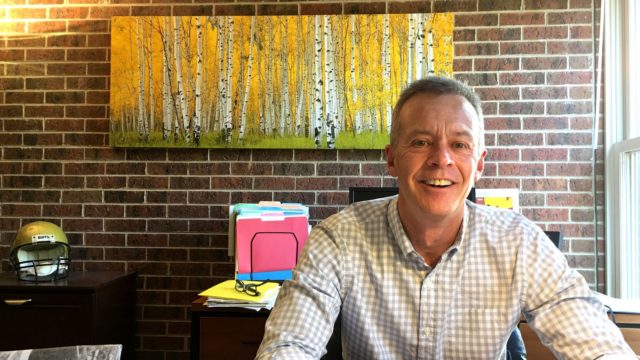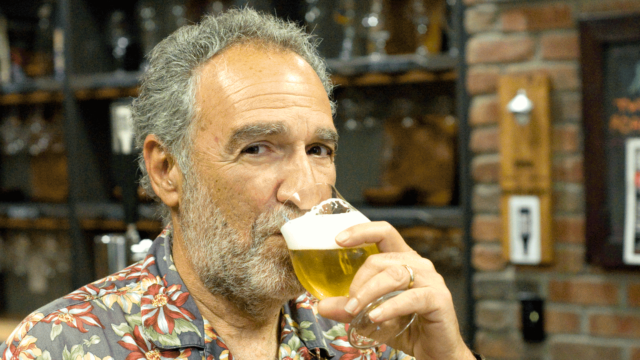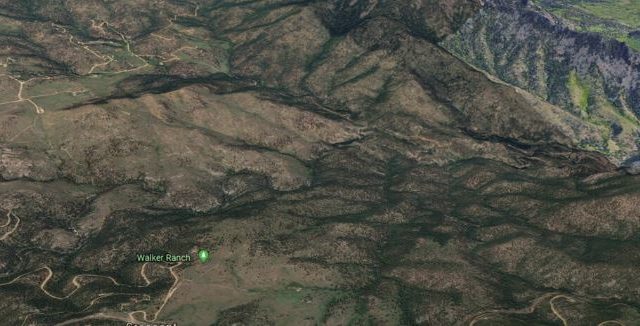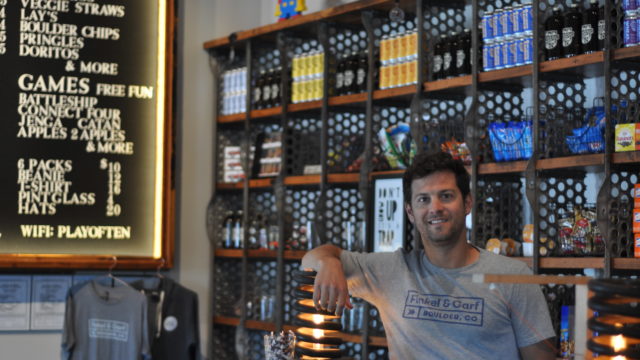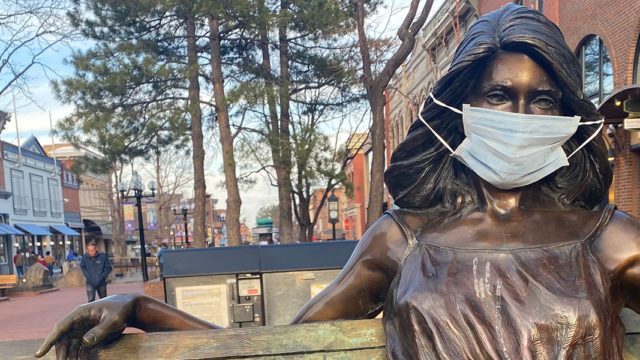Boulder has a wealth of locally developed specialty items, and what’s better than chocolate? Two local companies enrich Boulder’s food scene with smaller, artisan production and founders heavily involved in production and sales. These businesses present an intimate, locally made product, and provide local flavor.
Few farmers cultivate plants stateside since cacao fruit thrives in tropical climates, making most chocolate internationally grown.
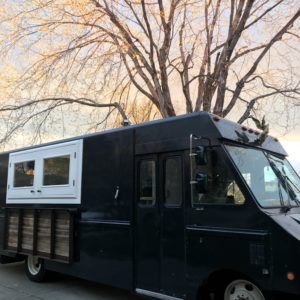
Moksha Chocolate makes chocolate at 2746 47th St., where its owners recently finished turning the garage-door façade into a storefront. Boulder’s Chamber of Commerce will attend the shop’s ribbon cutting mid-September. Chocolatiers at Fortuna Chocolate craft their luxury chocolate out of a 26-foot long factory/food truck, which they parked by the other food trucks at Boulder County Farmers Market before the pandemic.
Moksha and Fortuna develop their storefronts and brands with intention, both focusing on future business plans and their websites during the pandemic. While crafting quality, time-intensive chocolate, the two companies support their international farmers in ways more significant than framing a somewhat-voyeuristic photo with them in their store.
Deep in the heart of Mexico and Peru
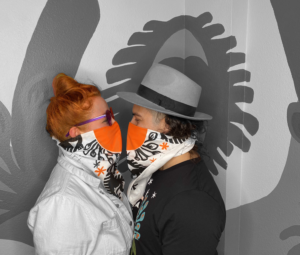
Mesoamerica, now Mexico, fostered the first cacao trees more than 4,000 years ago. Sienna Trapp-Bowie, who co-founded Fortuna Chocolate with her husband Aldo five years ago, sources cacao directly from Mayan farmers in Tabasco and Chiapas, Mexico, those with the longest history of cultivating the plant.
The couple wanted chocolate’s birthplace — as well as Aldo’s, who grew up in Mexico City — to shape Fortuna as far away as Boulder. Here, Sienna and Aldo apply their cacao passions to a business model that allows them to understand a culture more deeply.
Whereas other chocolatiers often work with a middle man to navigate international exportation and associated border control, both Moksha and Fortuna maintain direct relationships with their farmers.

Jennifer and Michael Caines bought their farm in San Martín, Peru five years ago, founding Moksha Chocolate in 2019. As they worked with the area’s farmers — a man named Custudio manages the couple’s farm while they’re in Boulder — they noticed many were underpaid, inspiring little incentive for their cacao’s quality control.
Moksha founded the Shanao Cacao Collective, a co-op of 20 family-owned farms whose cacao Moksha also uses, to serve as a community-based cacao processing and sustainable farming education center in San Martín. As the link between the area’s farmers and supply chains, Shanao Cacao Collective’s local industry professionals receive $2 per cacao kilogram, the fair trade price.
Moksha also pays this rate to San Martín farmers outside the collective. Along with the same charge for import and export costs, Moksha pays $6 per cacao kilogram that stays within the community. At three times the fair trade rate, this amount retains wealth within San Martín and encourages improved cacao quality.
As compared to Aldo, who grew up in a poorer part of Mexico City, Sienna was raised in well-off Boulder and says that marrying someone with such a different upbringing and life experience has inspired the couple to develop deeper relationships with the farmers who harvest the cocoa they use at Fortuna.
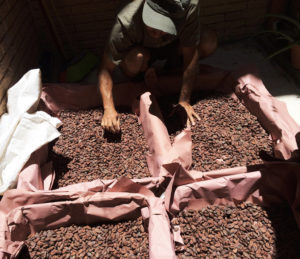
Past violence in Mexico, and the socio-economic conversations that’ve followed, reveal themselves through Fortuna’s blog and merchandise. Stories on agroforestry’s relation to ancient cultures and the link between environmental and racial justice reflect regular conversations the couple has in their home about how their brand honors those whose land their chocolate grows on.
Farmers in Tabasco and Chiapas, Mexico pack and ship dried cacao beans, harvested from cacao pods and fermented for days, to Fortuna. In the factory truck, Aldo roasts them to eliminate any remaining moisture, separate the shell from the inner cacao nib and develop flavor. Fortuna’s 100 percent dark chocolate bar’s beans, for example, are lightly roasted, then stone ground for several days to achieve a rich, smooth mouthfeel.
Bean to Bar
Jennifer says that, while customers appreciate Moksha’s inspiring backstory about buying a cacao farm in San Martín, Peru and enacting regenerative trade with farmers there, it doesn’t sell the chocolate.
Origin stories only go so far, but the fair-trade, shop local, know-your-sources, farm-to-table crowd does appreciate the bean-to-bar ethic.
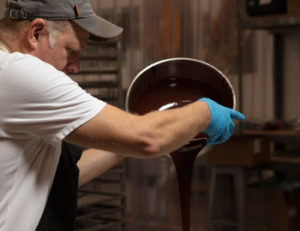
Because growing cacao is so labor intensive — it takes up to three years to grow a crop for a single harvest — Moksha initially struggled to make money.
Before founding Moksha, Michael, an impassioned horticulturist who crafts all the company’s chocolate, had a warehouse event space the couple started using for chocolate making classes to teach the community about the process and educate them on how cacao travels across oceans to our Boulder market.
Michael grew up on a farm and spent many years as a cook, so nature and cuisine has always been a part of the life he wanted to preserve as a chocolatier.
Michael’s machines run overnight. He can tell by the subtle smell when he walks into the warehouse in the morning if anything’s gone wrong. After finely grinding cacao nibs, sometimes for as long as three days, Michael then heats the resulting paste to further develop the chocolate’s flavor.
Finally, chocolatiers temper the mixture by rapidly lowering and raising the chocolate’s temperature to form a specific crystal structure that’s glossy and holds shape for molding.
Moksha makes 3-5 tons of chocolate every year and develops milk and dark chocolate with a rigid recipe: 50 percent milk chocolate has 35 percent cocoa butter and 15 percent cocoa mass. 72 percent dark chocolate has 40 percent cocoa butter and 32 percent cocoa mass.
Moksha, originally named Shanao Cacao after the region the beans grow in, rebranded in 2019 and started including CBD in some bars. Jennifer spearheaded the update as a CBD user excited about the growing trend and how it helps relieve pain and anxiety. We hopped on the bandwagon last year and taste tested CBD chocolates from local Gataka, Kefla and Moksha, the only competitor from Boulder.
Selling Boulder
Many buy chocolate as a spontaneous treat for themselves or a decadent gift for others. Both require visibility and foot traffic, which complicates things for Boulder’s key quality chocolate players.
During lockdown, Moksha started shifting its space from a factory to more of a storefront, which is now officially open. Because Fortuna couldn’t afford a standard shop space, Aldo roasts, grinds and processes in the company’s truck, a days-long process thoroughly enjoyed by Boulder County Farmers Market attendees.
“Rent is really prohibitive for small, family businesses to be able to engage in any kind of meaningful, professional way anywhere downtown,” Sienna says. In addition to their unique factory/food-truck vehicle, Fortuna explores new ways to expand beyond a family business.
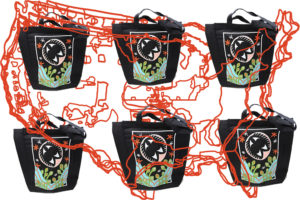
Though Fortuna online orders during the pandemic, they stopped parking at the farmers market to protect their multi-generational household, instead shifting focus toward website and merchandise development. To Sierra and Aldo, Fortuna is more than just chocolate, it’s their life brand that encourages good in the world.
Proceeds from their tote go toward grassroots organizations working to support communities impacted by detention centers and immigration policies. It’s just one example of a cause close to Sierra and Aldo’s hearts since they’ve crossed the U.S.-Mexican border frequently to visit family.
It’s all their part to broaden the conversation past luxury chocolate for rich people. “Craft chocolate is beyond most peoples’ budgets, and that’s simply not okay with me for it to be all we do,” Sierra says.

